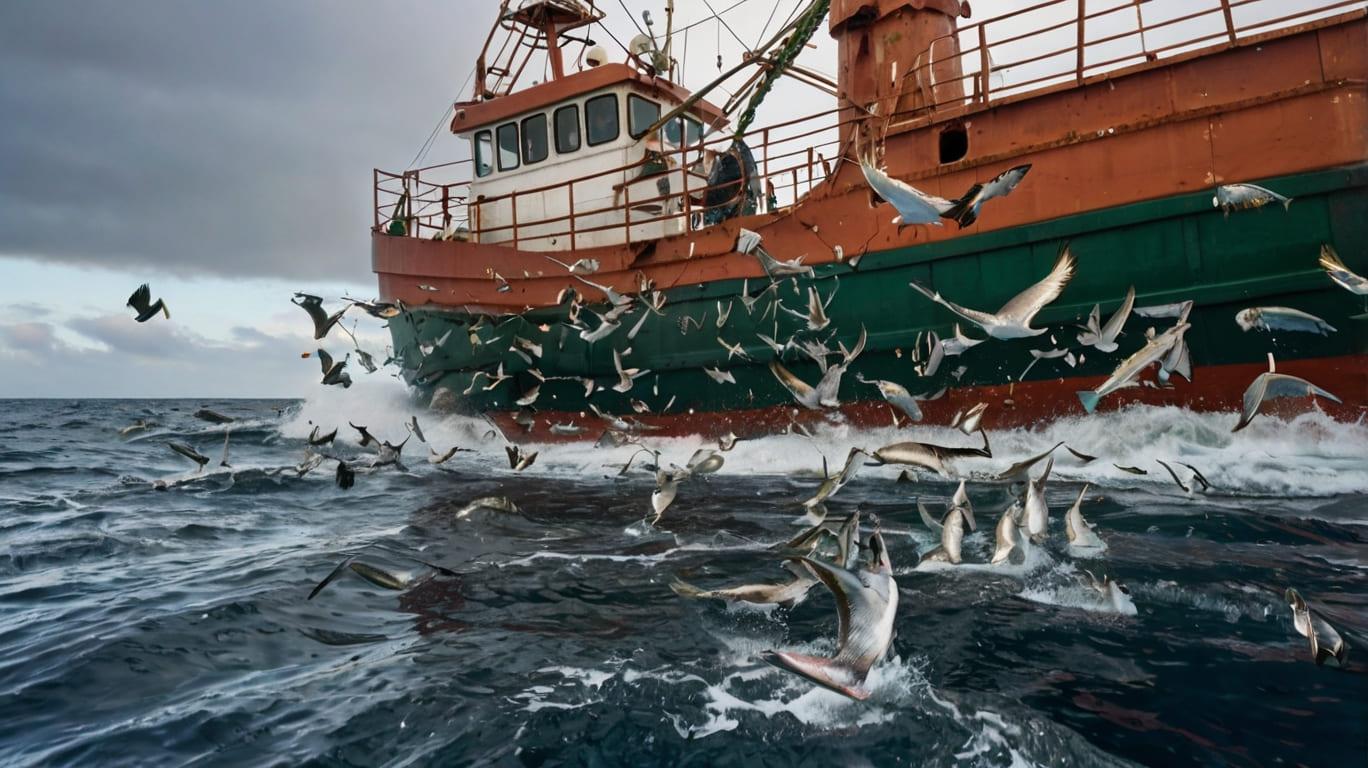
In a startling revelation, marine scientists and environmental experts are sounding the alarm that overfishing in our oceans poses a greater immediate threat to marine ecosystems than climate change. This urgent warning comes as new data paints a grim picture of the state of global fish stocks and the potential collapse of marine biodiversity.
Dr. Boris Worm, a renowned marine biologist and researcher, emphasizes the severity of the situation: “The biggest danger we face is overfishing. We literally could fish out our oceans, some scientists believe, in the next 40, 50, 60 years.” This stark prediction underscores the critical need for immediate action to preserve our marine resources.
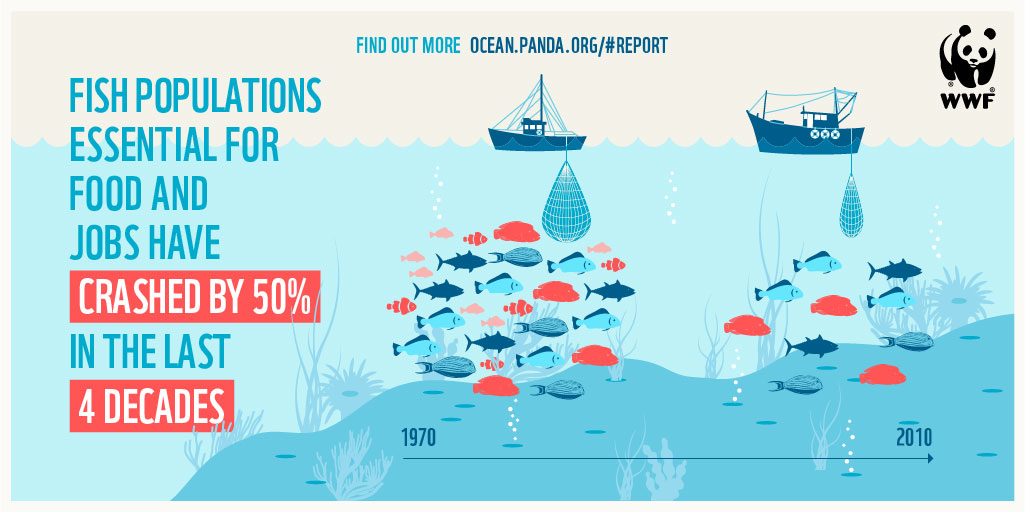
Recent studies indicate that nearly 90% of global marine fish stocks are either fully exploited or overfished, with approximately 37% classified as overfished as of 2024.
The situation is particularly dire in regions like the Southeast Pacific and the Mediterranean, where around two-thirds of fish stocks have reached biologically unsustainable levels.
The impact of overfishing extends far beyond the depletion of fish populations. Over the past 40 years, marine species populations have plummeted by 39%, with more than one-third of all sharks, rays, and chimaeras now at risk of extinction due to overfishing. This rapid decline in biodiversity threatens the delicate balance of marine ecosystems and could have far-reaching consequences for global food security and economic stability.
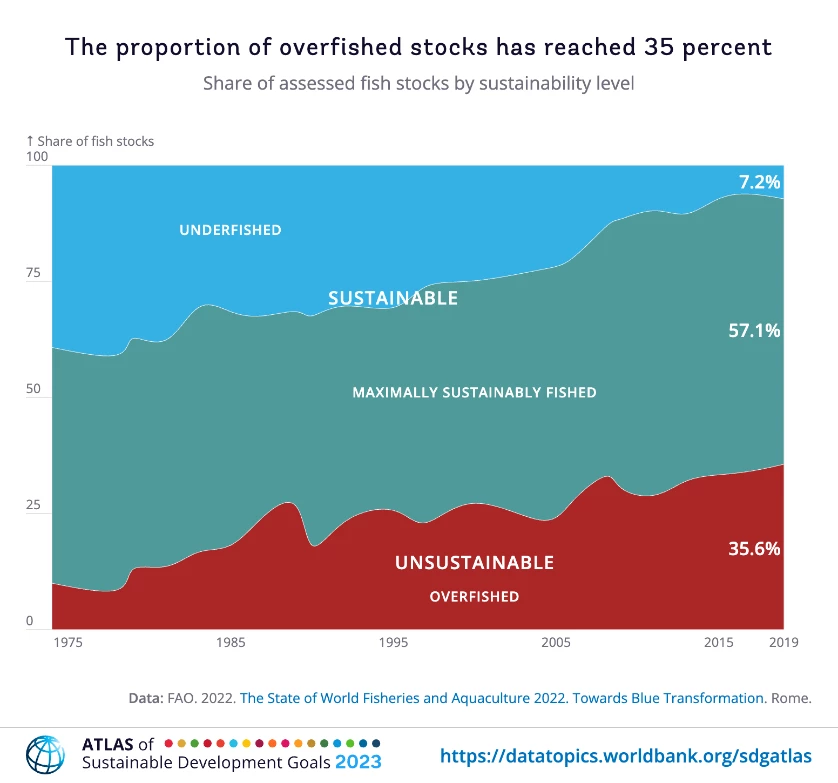
The ecological impact of overfishing is profound. The removal of key species disrupts food webs, resulting in cascading effects on marine biodiversity and ecosystem health. This disruption can lead to the potential collapse of entire fish populations and the species that depend on them for survival.
Dr. Daniel Pauly, a respected marine biologist and fisheries scientist, points out the looming dilemma: “Increasingly, we will be faced with a choice: whether to keep the oceans for wild fish or farmed fish.” This statement highlights the growing tension between traditional fishing practices and the rise of aquaculture as a potential solution to meet global demand for seafood.
The economic implications of overfishing are equally concerning. The fishing industry generates a $362 billion global market and provides livelihoods for millions of people worldwide.
Approximately 38 million people are directly employed in the wild capture seafood sector, and many communities rely on fishing for their economic survival. The collapse of fish stocks can lead to job losses and economic instability for these communities, as seen in the aftermath of the Grand Banks cod fishery collapse in 1992, which left thousands without work.
Furthermore, overfishing poses a significant threat to global food security. More than 3 billion people depend on seafood as a primary source of protein. The depletion of fish stocks jeopardizes this crucial food source, particularly for vulnerable populations that rely heavily on fish for their daily nutritional needs.
Illegal, unreported, and unregulated (IUU) fishing further exacerbates the problem, accounting for an estimated 11-26 million tonnes of the global catch annually. This shadow industry not only depletes fish stocks but also undermines efforts to implement sustainable fishing practices.
Charles Clover, author of “The End of the Line: How Overfishing Is Changing the World and What We Eat,” offers a sobering perspective on the realities of modern fishing: “Bycatch and discards are a fact of life to a fisherman. There is no fishing method that catches only the quarry.” This observation highlights the need for more selective and sustainable fishing methods to reduce the unintended capture of non-target species, which raises ethical concerns regarding animal welfare and the responsible management of marine resources.
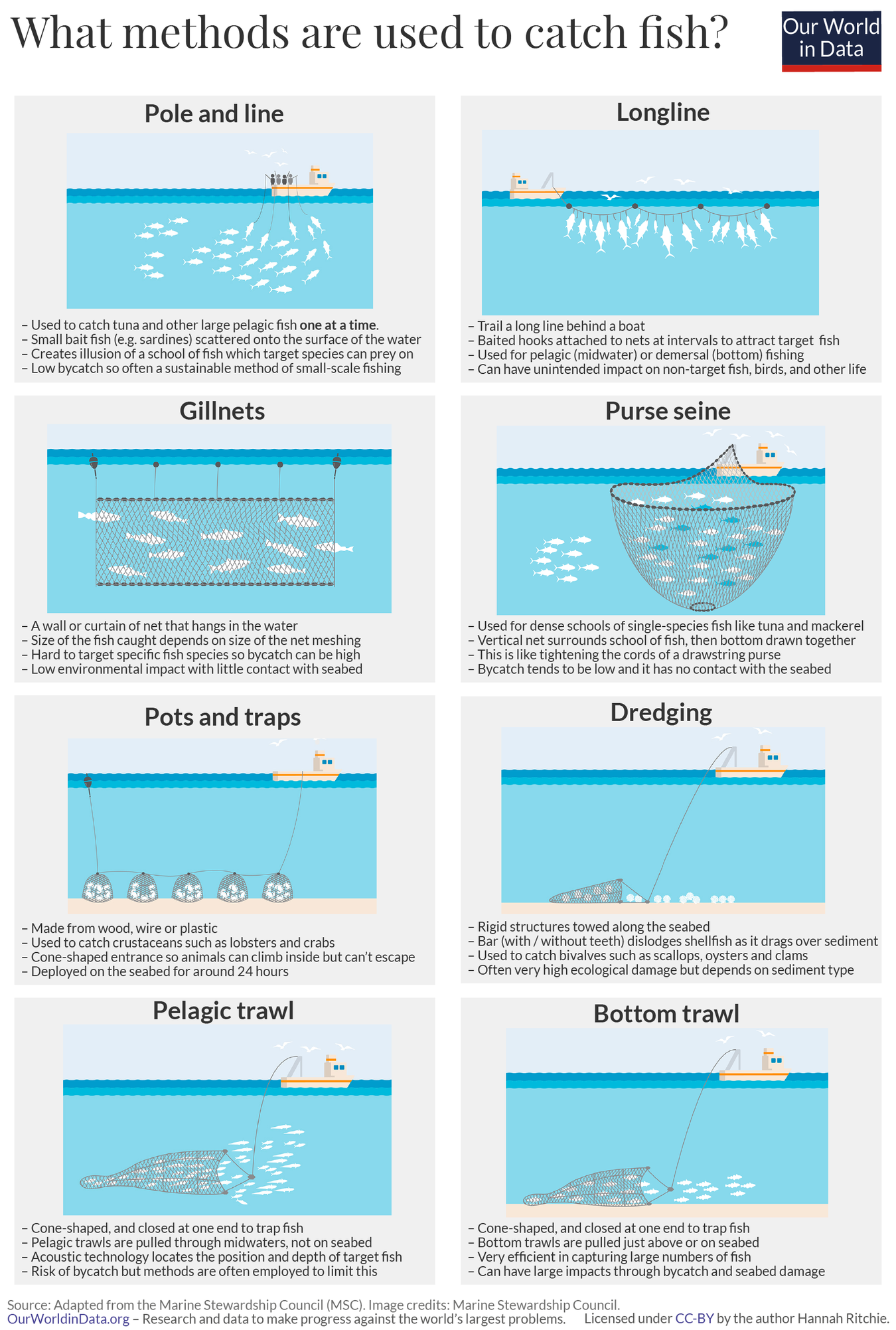
The increasing demand for seafood, driven by a growing global population, leads to unsustainable fishing practices. Climate change further complicates this issue by altering fish migratory patterns, making it difficult to manage fish stocks effectively. If current trends continue, it is projected that fish stocks could collapse by 2048, leading to dire consequences for marine ecosystems and human communities reliant on fishing.
While the situation may seem dire, there is still hope for recovery through concerted global action. Dr. Sylvia Earle, a distinguished marine biologist and oceanographer, emphasizes the potential benefits of addressing overfishing: “Tackling overfishing is a ‘win-win’ for our planet. By conserving our rich marine resources, we also enable more people to have the protein they need to live healthily.”
Efforts to establish and enforce Marine Protected Areas (MPAs) have shown promise in helping fish populations recover. However, challenges remain in terms of funding and effective enforcement, particularly in international waters where oversight is limited.
The role of major fishing nations, particularly China, has come under scrutiny. With the world’s largest distant-water fishing fleet of over 17,000 vessels, China has been implicated in both legal and illegal overfishing practices in international waters and within the territorial waters of various countries. This has led to significant declines in local fish populations and disrupted local fishing industries in regions such as Latin America and West Africa.
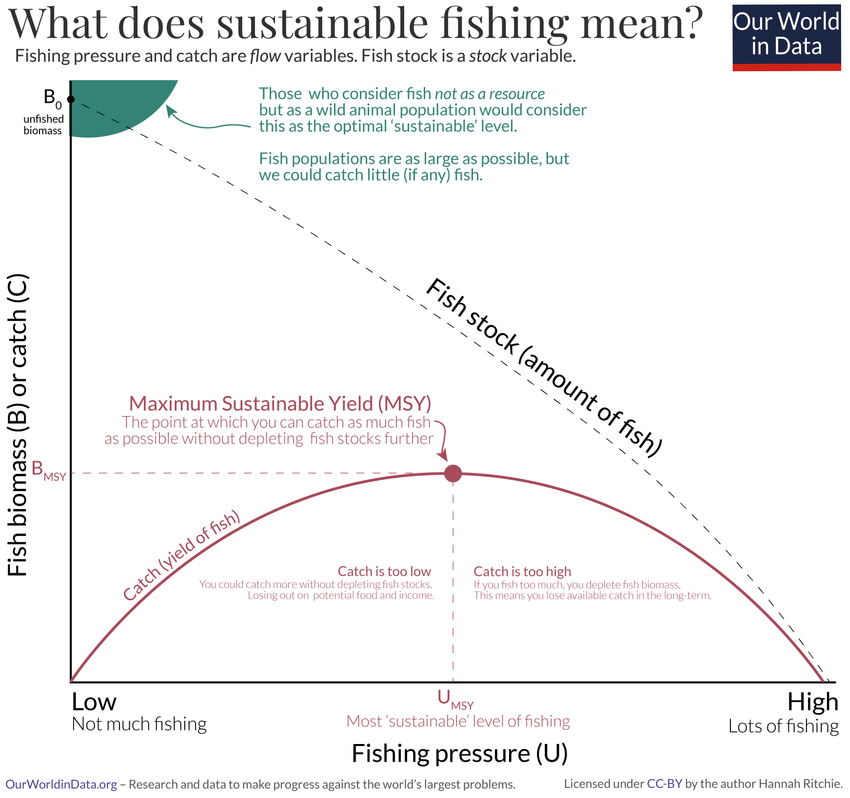
As the global community grapples with the complex challenges of climate change, it is crucial not to overlook the immediate and severe threat posed by overfishing. The health of our oceans and the biodiversity they support are fundamental to the planet’s wellbeing and our own survival.
Addressing overfishing requires a multifaceted approach, including stricter regulations, improved monitoring and enforcement, support for sustainable fishing practices, and increased public awareness of the importance of marine conservation.
The clock is ticking, and the choices we make in the coming years will determine the fate of our oceans and the countless species that call them home. It is a race against time to preserve the blue heart of our planet for future generations, ensuring the long-term sustainability of marine ecosystems, protecting biodiversity, safeguarding economic stability, and upholding our ethical responsibility to manage marine resources responsibly.
References:
Failing fisheries and poor ocean health starving human food supply – tide must turn, WEF, 2015
Fish and Overfishing, Our World in Data, March 2024
Ending overfishing: An urgent need to protect our oceans, October 18, 2023
YOU MIGHT ALSO LIKE: Great Barrier Reef’s Remarkable Resurgence, Surprises Experts







